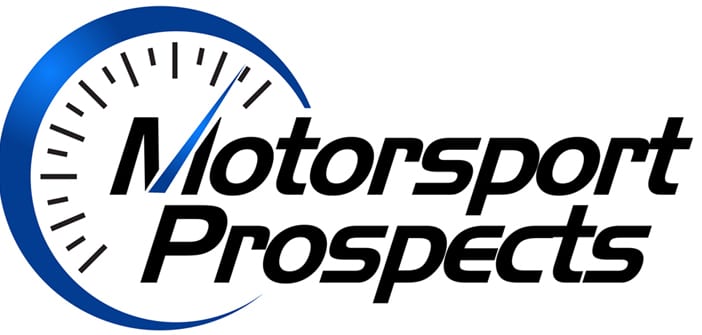This is a guest post by motorsport writer Josie Smith from the blog Into the Kitty Litter. While it was published on July 9, 2018 it still resonates today and so I asked Josie if I could repost it in its entirety to which she agreed. If you enjoy F1 and MotoGP then I encourage you to check out Into the Kitty Litter and subscribe.

The world of motorsport is demanding, there is no escaping that. We hear so much about the physical training racers go through; the hours in the gym, training camps, reaction training, simulator and we occasionally hear of the education side but one pressing thing we don’t hear about is the mental support they receive. Mental health is a subject that is becoming more prevalent as people everywhere become more vocal about their struggles but does the world of racing take it as seriously as it should?
We watched in concern as Daniil Kvyat cast a forlorn figure during interviews post 2016 Russian GP and changing his Instagram bio to ‘just a human’ but this moment opened a door into the world of racing and the mental strain on racers.

Earlier this season, during the French GP, Formula 2 driver Arjun Maini delivered a hard to hear radio message to his team after further problems with his Trident car. The emotion and pain were evident in his voice but, during the replay, the clip was only greeted with laughter.

Racers have voiced their opinions on booing and, in some cases, cheering after crashes. 6 time MotoGP world champion Marc Marquez was quoted as saying the 2017 Misano crash cheers ‘make him sad’ as the grid put their lives on the line for the entertainment of the masses, therefore deserving respect. During the 2017 Ponoco race, NASCAR driver Danica Patrick confronted fans for booing her at a post-race event, stating ‘I’m a f**king person. I’m a person too’. Even 4-time F1 world champion Lewis Hamilton asked for fans to stop booing when his then championship rival and teammate Nico Rosberg graced the podium at Silverstone.
It’s easy to say that ‘they’re used to it’ when, really, they shouldn’t have to be. I always find myself asking how many of them go home and dwell on the hateful comments they are bombarded with from the keyboard warriors, sofa analysts and media alike. Some mistakes are made due to confidence and inexperience which can be improved with time but, with social media, the barrage of abuse is almost inescapable and they’re thrown into the stocks to have it hurled at them from all angles with no relief or protection, it can overcome the strongest of minds. The responses to incidents such as Maini’s radio message often leave me disgusted in fans and, in rare occasions, fellow racers (as Santino Ferrucci demonstrated below); crybaby, man up, appreciate the privileged position you’re in. It only takes one nasty comment during a low moment to push someone too far and showing emotions, for men and women alike, should never be seen as a sign of weakness like the minority of fans attempted to portray Maini’s outburst as.

However, it’s not just outside factors that contribute to this issue. The majoirty of sports sports, racers included, share the same perfectionist trait which can often leave them picking at non existence faults that they believe hindered their performance. Traits like this have been known to lead to depressive disorders such as bipolar and depression due to the level of pressure placed onto yourself to reach an unobtainable goal of ‘perfect’.
When I’ve questioned this in the past, many have suggested that sports psychologists are often seen as the ‘port of call’ for dealing with these issues but their job is not as a counsellor, it is to improve their performance so who do they turn to or is it left solely up to them to decide they ‘need’ someone to help with that area?
Racers are obviously not the only ones affected by mental health in the racing community. Teams and media spend weeks/months away from loved ones, putting a strain on their relationships and they are often the ones that the more ‘die hard’ fans seek out when things don’t go right. Less than a month ago, McLaren team members were hounded by ‘fans’ due to the performance of their cars and even yesterday, post-British GP, I saw a tweet that can only be described as vile towards Mercedes and, more personally, James Allison.
In an industry as large and lucrative as motor racing who employ thousands of people, there have to be measures put in place and mental health services should be readily available for both racers and employees before they reach crisis point. As someone who suffers from mental health problems, mine being a decade-long battle with depression, I understand the stigma attached to these issues which is why the easy access will make it far better for those affected. A fact that many overlook, both inside the industry and outside, is that they are people too. They listen to the criticism, they are disappointed when things go wrong, they take it to heart and ask ‘what else could I have done’ far more than anyone else. It’s natural, it’s human but it can be unhealthy and lead to a decreased sense of self worth or increased anxiety. People can only bend so far and, without help, sometimes they will break.
With 1 in 4 people suffering from a mental health disorder, it’s not a subject that should be hushed or pushed aside in any way, shape or form and employers need to take measures to help and protect their employees before it becomes a ‘good idea’ in horrible hindsight.
Josie Smith is the publisher of motorsport blog Into the Kitty Litter. This post was previously published there on July 9, 2018. It has been re-published with permission.
